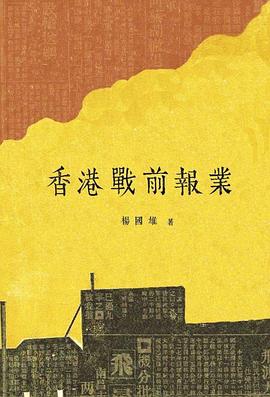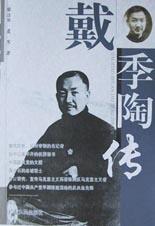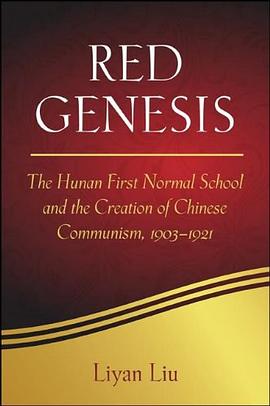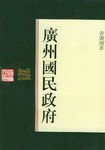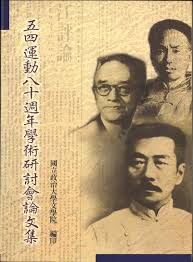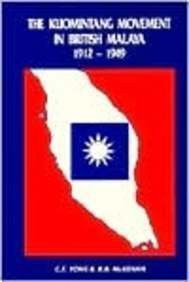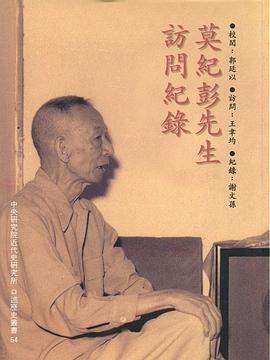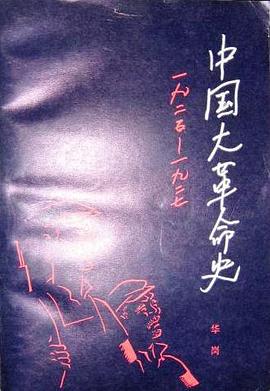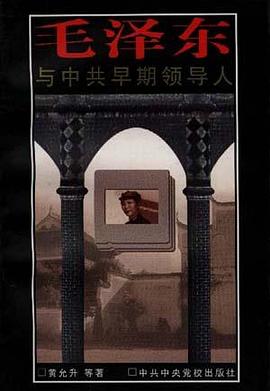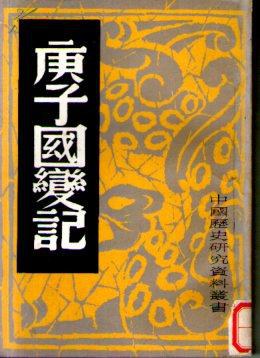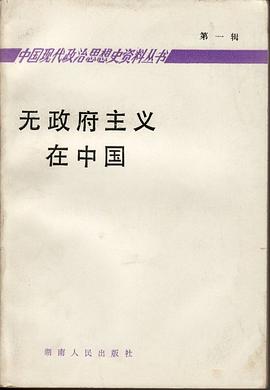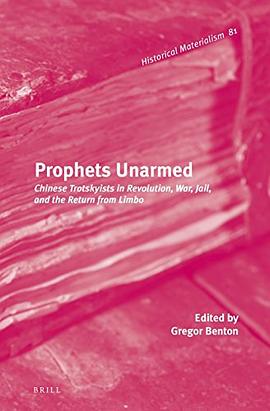

具体描述
Prophets Unarmed is an authoritative sourcebook on the Chinese Communist Party's main early opposition, the Chinese Trotskyists, who emerged from the Chinese Communist Party, in China and Moscow, in reaction to its 1927 defeat. In spite of being Trotskyism's main section outside Russia, they were crushed by Stalin in Moscow and by Chiang Kai-shek and Mao Zedong in China, thus becoming China's most persecuted party. Their strategy in the Japan war, when they failed to take up arms, was short-sighted and doctrinaire, and they had scant impact on the revolution. Even so, their association with Chen Duxiu and Wang Shiwei, their attachment to democracy, and their critique of Mao's bureaucratic socialism brought them a scintilla of recognition after Mao's death. Their standpoints and proposals and their association with the democratic movement are not without relevance to China's present crisis of morals and authority.
作者简介
Gregor Benton (PhD, 1978) is Professor at Nanyang Technological University. His books include Mountain Fires, honoured as a 'special book in Asian studies’ and the Association of Asian Studies’ Best Book on Modern China. His Hu Feng’s Prison Years won the English Pen Award.
目录信息
Part I: Purgatory: The Chinese Trotskyists’ Ordeal and Struggle (Wu Jimin, 2008)
Part II: Autobiographical Accounts of Chinese Trotskyists’ Early Years
a. Unfinished Autobiography (Chen Duxiu)
b. A Consciousness Awakes (Zheng Chaolin)
c. My First Contact With New Ideas (Wang Fanxi)
Part III: Chinese Trotskyists in the Revolution of 1925–7
a. Before And After May Thirtieth (Zheng Chaolin)
b. Two Years at University (Wang Fanxi)
Part IV: Chinese Trotskyists in Moscow
a. Twelve People (Zheng Chaolin)
b. KUTV (Zheng Chaolin)
c. Chinese Students in Moscow (Wang Fanxi)
d. My Second Year in Moscow (Wang Fanxi)
e. Chinese Students at the International Lenin School in Moscow, 1926–38: Light from the Russian Archives (Alexander V. Pantsov and Daria A. Spichak)
f. Stalin and the Chinese Communist Dissidents (Alexander Pantsov)
Part V: The Unification of the Chinese Trotskyists
a. Appeal to All Comrades of the Chinese Communist Party (Chen Duxiu, 10 December 1929)
b. An Ebbing or a Flowing Tide? (Zheng Chaolin)
c. The Left Opposition (Zheng Chaolin)
d. Unification of the Four Groups (Wang Fanxi)
Part VI: Chinese Trotskyism in the 1930s and the 1940s
a. The Founding of Struggle and the Darkest Days of My Life (Wang Fanxi)
b. Chen Duxiu, the Chinese Trotskyists, and the War of Resistance (Wang Fanxi)
c. The Pacific War and a New Split in the Organisation (Wang Fanxi)
d. From War to Revolution (Wang Fanxi)
e. The Communist League of China (Frank Glass, January 1940)
Part VII: Chen Duxiu
a. Chen Duxiu, Founder of Chinese Communism (Wang Fanxi)
b. Chen Duxiu and the Trotskyists (Zheng Chaolin)
c. Chen Duxiu Had No Wish to Rejoin the CCP on Leaving Jail (Zheng Chaolin)
d. Preface to the Collected Poems of Chen Duxiu (General Xiao Ke, June 2, 1993)
Part VIII: Chen Duxiu’s Last Letters and Articles
a. Editor’s Introduction to Chen Duxiu’s Last Articles and Letters (Gregor Benton)
b. Letter to Chen Qichang and Others (21 November 1937)
c. Letter to Leon Trotsky (3 November 1938)
d. Letter to Xiliu and Others (1 March 1940)
e. Letter to Xiliu and Others (24 April 1940)
f. Letter to Xiliu (3 November 1938)
g. Letter to Liangen (31 July 1940)
h. Letter to Xiliu (September 1940)
i. My Basic Views (28 November 1940)
j. Letter to Y (19 January 1941)
k. Letter to H and S (19 January 1941)
l. A Sketch of the Postwar-World (10 February 1942)
m. Once Again on the World-Situation (19 April 1942)
n. The Future of the Oppressed Nations (13 May 1942)
o. My Feelings on the Death of Mr Cai Jiemin (Chen Duxiu)
p. On Chen Duxiu’s Last Views (Shuang Shan [Wang Fanxi])
Part IX: Peng Shuzhi and Wang Fanxi on Leon Trotsky
a. Peng Shuzhi (1976)
b. Wang Fanxi (1980)
Part X: Peng Shuzhi and Wang Fanxi: A Confrontation
a. Trotskyism in China (Peng Shuzhi, 1947)
b. Problems of Chinese Trotskyism (Wang Fanxi, 1947)
Part XI: Some Articles and Speeches by Trotsky about the Chinese Trotskyists and Some Correspondence between Him and Them
a. The Speech of Comrade Chen Duxiu on the Tasks of the Chinese Communist Party (17 May 1927)
b. A Remarkable Document on the Policy and the Régime of the Communist International (4 October 1928)
c. Peasant-War in China and the Proletariat (22 September 1932)
d. A Strategy of Action and Not of Speculation: Letter to Beijing Friends. What are, at Present, the Chief Elements of the Political Situation in China? (3 October 1932)
e. Excerpts from Letters and Materials from China Written or Copied to Trotsky (1934)
1) Letter from Frank Glass, 30 August 1934.
2) Letter from Harold Isaacs to the Central Committee of the CCP concerning China Forum, 20 May 1934.
3) Letter from Frank Glass to the International Secretariat, 26 August 1934.
4) On Peasant-War and Economic Upturn, Niel Sih, 21 September 1934.
5) Letter from Chen Duxiu to the International Secretariat, 15 May 1934.
f. Chen Duxiu and the General Council (10 August 1935)
g. Introduction to Harold R. Isaacs, The Tragedy of the Chinese Revolution (1938)
h. Letter to Frank Glass (11 March 1939)
i. China and the Russian Revolution (July 1940)
j. Leon Trotsky on Chinese Communism (Wang Fanxi) (1990)
Part XII: Chinese Trotskyist Reflections on Mao Zedong’s Revolution
a. The Causes of the Victory of the Chinese Communist Party over Chiang Kai-shek, and the CCP’s Perspectives. Report on the Chinese Situation to the Third World-Congress of the Fourth International, August–September 1951 (Peng Shuzhi, 1952)
b. Thinking in Solitude (Wang Fanxi, 1957)
Part XIII: Chinese Trotskyists and Guerrilla-War
a. The Real Lesson of China on Guerrilla-Warfare: Reply to ‘Letter from a Chinese Trotskyist’ (Chen Bilan, 1971)
b. On the Causes of the CCP’s Victory and the Failure of the Chinese Trotskyists in the Third Chinese Revolution: A Reply to Peng Shuzhi (Wang Fanxi, 1973)
Part XIV: Chinese Trotskyism and Literature
a. Chinese Trotskyism and the World of Letters (Gregor Benton)
b. Wild Lily (Wang Shiwei, 1942)
c. Politicians, Artists (Wang Shiwei, 1942)
Part XV: Prefaces to Chinese Trotskyist Memoirs and Biographies
a. Editor’s Introduction to Zheng Chaolin’s Memoirs (Gregor Benton)
b. Peng Shuzhi and the Chinese Revolution: Notes Towards a Political Biography (Joseph T. Miller)
c. Zheng Chaolin’s Preface to the Unpublished Manuscript of his Memoirs (1945)
d. Zheng Chaolin’s Postscript to the English Edition of his Memoirs (1987)
e. A Self-Description at the Age of Ninety (1 May 1990) (Zheng Chaolin)
f. Wang Fanxi’s Postscript to the Oxford Edition of Memoirs of a Chinese Revolutionary (1980)
g. Wang Fanxi’s Preface to the Morningside Edition of Memoirs of a Chinese Revolutionary (1987)
h. Wang Fanxi’s Preface to the French Edition of Memoirs of a Chinese Revolutionary (1990)
Part XVI: The Chinese Trotskyists’ Imprisonment and Release from Prison
a. Statement by Chinese Trotskyists Overseas on the CCP’s Release of Zheng Chaolin and Other Trotskyist Political Prisoners (July 24, 1979)
b. A Brief Account of My Third Spell in Prison (Zheng Chaolin)
Part XVII: Wang Fanxi Reviews Tang Baolin’s History of Chinese Trotskyism
Part XVIII: Obituaries
a. Oration at the Funeral of Mr [Chen] Duxiu (1879–1942) (Gao Yuhan)
b. Wu Jingru (1907–79) (Wang Fanxi)
c. Frank Glass (Li Furen) (1901–88) (Wang Fanxi)
d. Lou Guohua (1906–95) (Wang Fanxi)
e. Zheng Chaolin (1901–98) (Wang Fanxi)
f. Peng Shuzhi (1895–1983) and Chen Bilan (1902–87) (Cheng Yingxiang and Claude Cadart)
g. Wang Fanxi (1907–2002) (Gregor Benton)
Biographical List
Bibliographical Note
References
Index
· · · · · · (收起)
读后感
评分
评分
评分
评分
用户评价
论文重要参考 资料翔实的中托史工具书 前言信息非常重要 书中内容大部分是中文资料翻译 中马库可查 内收吴基民的炼狱和潘佐夫对中托在苏俄的形成论述 另添加了米勒彭派视角的彭述之小传
评分论文重要参考 资料翔实的中托史工具书 前言信息非常重要 书中内容大部分是中文资料翻译 中马库可查 内收吴基民的炼狱和潘佐夫对中托在苏俄的形成论述 另添加了米勒彭派视角的彭述之小传
评分论文重要参考 资料翔实的中托史工具书 前言信息非常重要 书中内容大部分是中文资料翻译 中马库可查 内收吴基民的炼狱和潘佐夫对中托在苏俄的形成论述 另添加了米勒彭派视角的彭述之小传
评分论文重要参考 资料翔实的中托史工具书 前言信息非常重要 书中内容大部分是中文资料翻译 中马库可查 内收吴基民的炼狱和潘佐夫对中托在苏俄的形成论述 另添加了米勒彭派视角的彭述之小传
评分论文重要参考 资料翔实的中托史工具书 前言信息非常重要 书中内容大部分是中文资料翻译 中马库可查 内收吴基民的炼狱和潘佐夫对中托在苏俄的形成论述 另添加了米勒彭派视角的彭述之小传
相关图书
本站所有内容均为互联网搜索引擎提供的公开搜索信息,本站不存储任何数据与内容,任何内容与数据均与本站无关,如有需要请联系相关搜索引擎包括但不限于百度,google,bing,sogou 等
© 2025 onlinetoolsland.com All Rights Reserved. 本本书屋 版权所有





